Hello, DrSuleInfoHub friends, Essential newborn care tips for easy parenthood are needed for a baby’s health and development. Essential newborn care is a journey filled with love, joy, and responsibilities. There is no happier moment than the arrival of a newborn baby in the home. Let’s gather information about essential newborn care i.e. what care should be taken immediately after the birth of the baby like skin-to-skin contact, breastfeeding, and formula feeding.
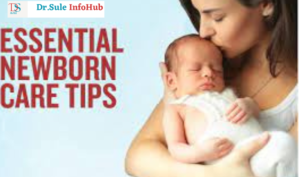
Also, new mothers may have many questions such as when to breastfeed the baby, how long the interval between two feedings, when will be the baby be bathed for the first time, how to choose safe skincare products for the baby, whether to apply kajal to the baby, let’s see the answers to all these questions in today’s essential newborn care blog.
Preparing for arrival (essential newborn care 1)
Before the baby arrives, we must make some necessary preparations.
Creating safe environment
- It is necessary to provide a safe environment for the baby. A baby is innately curious, so it is necessary to give it a suitable and comfortable environment.
- Block areas that are not baby-friendly, Safety gates should be installed at the top and bottom of the stairs.
- If electric outlets are open then cover it as soon as possible.
Assembling needful equipments
The First Moments (essential newborn care 2)
The Magic of Skin-to-Skin Contact
Bonding– skin-to-skin contact promotes deep emotional bonding between mother and baby. when the baby lies on the bare chest of the mother baby feels secure, comfortable and loved. Baby will be familiar with to touch, and love of their mother and he will feel safe.
Regulating temperature – Newborn faces difficulty regulating temperature. Skin-to-skin contact reduces hypothermia because skin-to-skin contact helps to keep the baby warm.
Initiating Breastfeeding – Skin-to-skin contact immediately after birth can help initiate breastfeeding. Your baby’s natural reflexes can guide them to your breast, making it more likely for them to latch on and start nursing.
Reducing Stress – For both you and your baby, skin-to-skin contact can reduce stress and anxiety. It releases oxytocin, often referred to as the “love hormone,” which promotes relaxation and bonding.
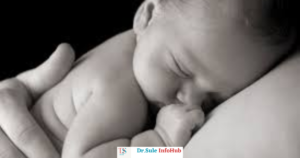
Umbilical Cord Care( essential newborn care 3)
In the first moments after birth, your baby’s umbilical cord is still attached. Proper care of the umbilical cord stump is crucial to prevent infection and ensure its safe healing. Here’s what you need to know:
- Keep it Dry – The key to caring for the umbilical cord stump is to keep it clean and dry. Fold the diaper down to expose the stump and allow air to reach it. Avoid covering it.
- No Submersion- While giving your baby a sponge bath is safe, avoid touching them in water until the cord stump falls off naturally. This usually happens within the first two weeks.
- Watch for Signs of Infection– Keep an eye out for any signs of infection around the cord area, such as redness, swelling, discharge, or a foul odour. If you notice any of these symptoms, seek medical help.
Apgar Score- Assessing Your Baby’s Health (essential newborn care 4 )
Shortly after birth, your baby will undergo a quick assessment known as the Apgar score. This assessment, performed by a healthcare provider, helps evaluate your baby’s overall health and well-being. Here’s what the Apgar score assesses:
- Heart Rate– The first component of the Apgar score assesses your baby’s heart rate. A healthy heart rate indicates that your baby’s circulatory system is functioning well.
- Breathing -The Apgar score evaluates your baby’s breathing rate and effort. Proper breathing is crucial for oxygen intake.
- Muscle Tone– Muscle tone is assessed to see if your baby’s limbs are active and moving. This provides insights into your baby’s neurological development.
- Reflexes– The assessment checks for reflexes like grimacing or coughing, which are indicative of a healthy nervous system.
- Skin Color-The colour of your baby’s skin, particularly their extremities, is examined to ensure proper circulation and oxygenation.
Each of these five components is scored on a scale of 0 to 2, with a maximum possible score of 10. A score of 7 or above is considered normal, indicating that your baby is in good health. If the score is lower, medical attention may be needed to address any immediate concerns. This is an important assessment in the essential newborn care blog.
Feeding Newborn (essential newborn care 5)
Breastfeeding Benefits- Breastfeeding time is the time of bonding, nourishment, and ensuring healthy growth.
Breastfeeding is often known as the gold standard of infant nutrition and essential newborn care. Here are some compelling benefits of breastfeeding for both you and your baby-
- Optimal Nutrition- Breast milk is nature’s complete food for infants. It contains essential nutrients, vitamins, and minerals that are needed for the healthy development of a baby.
- Immune booster– Breast milk contains antibodies that protect the baby from infection.
- Bonding- Breastfeeding provides a bonding of love between mother and child and gives a comfort zone for the baby. Essential newborn care is not just about meeting your baby’s physical needs; it’s about building a deep bond.
- Lower Risk of Allergies and Chronic Diseases- Breastfed babies are less likely to develop allergies, asthma, and certain chronic diseases later in life.
Formula Feeding( essential newborn care 6)
Feeding Schedules and Cues (essential newborn care 7)
Bathing Your Baby (Essential Newborn Care 8)
Gentle Skincare Products (essential newborn care 9)
- Fragrance-Free- Choose products fragrance-free as scents used in products can be harsh on baby’s skin. It may produce allergies and irritation to the baby.
- Hypoallergenic and Dermatologist-Tested- Choose products that are labelled as ‘hypoallergenic and dermatologist-tested, as they are less likely to cause adverse reactions.
- Mild and pH-Balanced- Check that the products are mild and pH-balanced to match a baby’s delicate skin. These products help retain the skin’s natural moisture.
- Avoid Harsh Chemicals- Products should be sulfate and paraben-free as they may absorb through the skin and create side effects.
- Use Tear-Free Baby Shampoo- Choose the right tear-free shampoo.
We will recommend some good products, choose like these products.
Mother Sparsh Milky Soft Baby Lotion with Milk Protein, Coconut Oil & Shea Butter | For 24Hrs Moisturization | 400ml. Baby Body Lotion Free From Chemicals: Milky Baby Lotion is free from preservatives, mineral oils, dyes & other chemicals
Sebamed Baby Shampoo 500ml|Ph 5.5| Camomile|Natural moisturisers|No tears formula|For delicate scalp. Sebamed children’s shampoo is free from irritants and hence has 0 per cent incidences of irritant reactions.
Cetaphil Baby Daily Lotion, White, Shea Butter. Active ingredients are- Soyabean oil, sunflower oil, glycerin and shea butter. It is Hypoallergenic and unscented.
Mamaearth Moisturizing Baby Bathing Soap Bar pH 5.5 with Goat Milk and Oatmeal. Dermatologically Tested pH Balanced Certified Toxin Free Hypoallergenic.
Understanding Baby’s Cries (Essential Newborn Care 10)
Decoding Different Cries
Self-care of parents(Essential Newborn Care 11)
Parenting is not an easy journey. Mothers may face postpartum stress, less sleep, feelings of nervousness, and irritability. Take help from family, and friends to grow a baby and enjoy parenthood.
Q. Is it safe to bathe a newborn right after birth?
A. Yes, it’s safe to give your newborn a sponge bath shortly after birth. However, wait until the umbilical cord stump falls off before giving a full bath.
Q. How can get that my baby get enough breast milk?
A. They have regular wet diapers, gain weight steadily, and seem content between feedings are signs of the baby getting enough breast milk.
Q. What is the right time to start tummy time with my baby?
A. Tummy time can begin as soon as you bring your baby home. Start with short, supervised sessions a few times a day to help develop their neck and upper body strength.
Q. What should I include in my baby’s emergency kit?
A. Your baby’s emergency kit should include essentials like diapers, formula or breast milk, baby food, medication, important documents, and a first aid kit.
Q. How do I calm a fussy newborn?
A. Calming a fussy newborn involves trying different soothing techniques such as swaddling, rocking, or using white noise. Remember that babies cry as a way to communicate their needs. It is an important question of essential newborn care.
Q. When can I give solid foods to my baby first time?
A. You can give solid foods first time at around 6 months of age. It’s essential to consult with your doctor before introducing any solids to ensure your baby is developmentally ready.
Q. Can I put kajal in my newborn baby’s eyes?
A. It is one of the important questions of essential newborn care answer is no. Dont put Kajal to babys eyes. It is not safe as it contains lead, it may cause irritation and allergy.

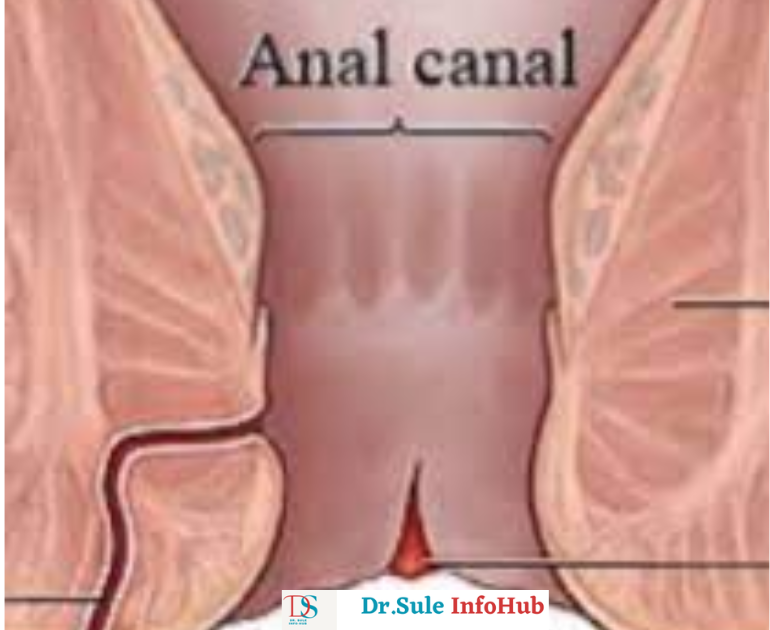
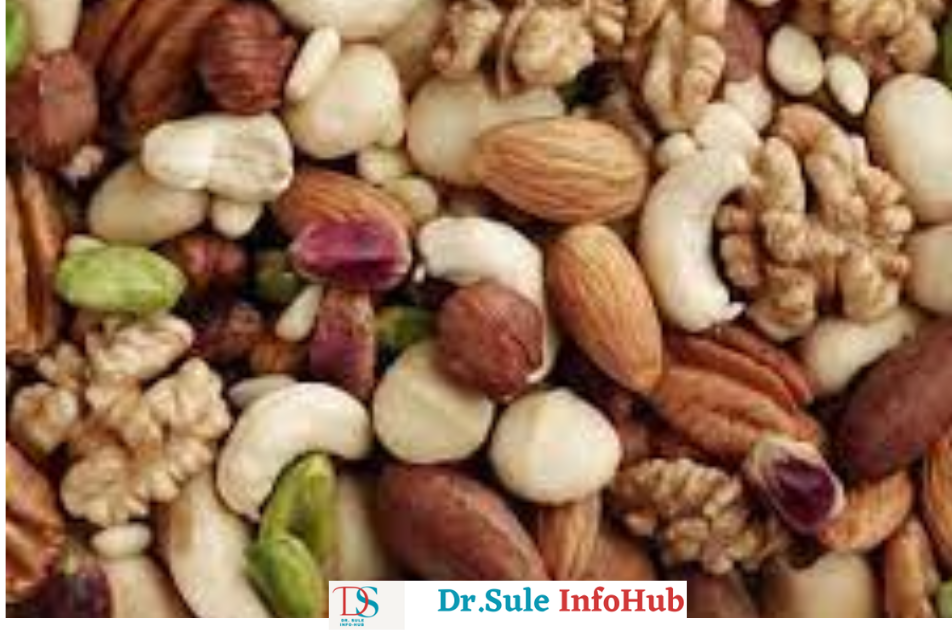
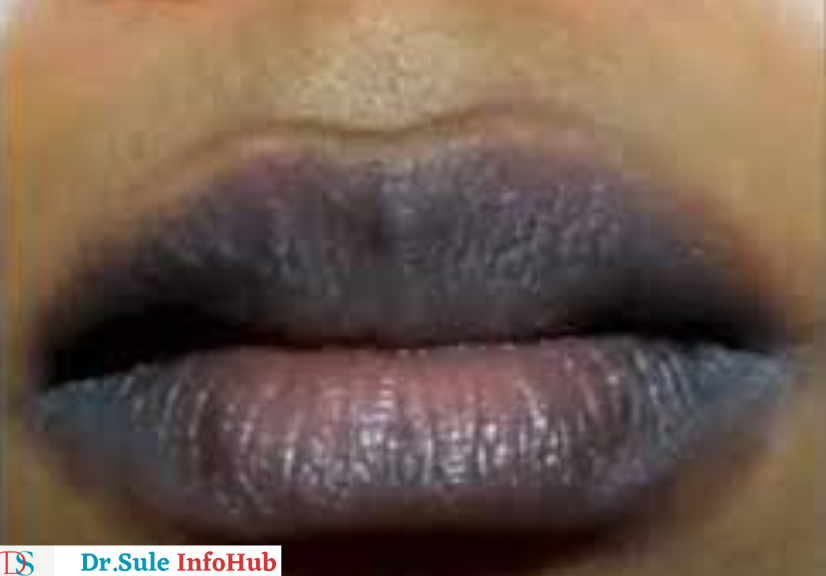
👧
I’ve been a regular on this amazing website lately, they have phenomenal content for users. The site owner clearly cares about engaging visitors. I’m a huge fan and hope they keep up their excellent work!